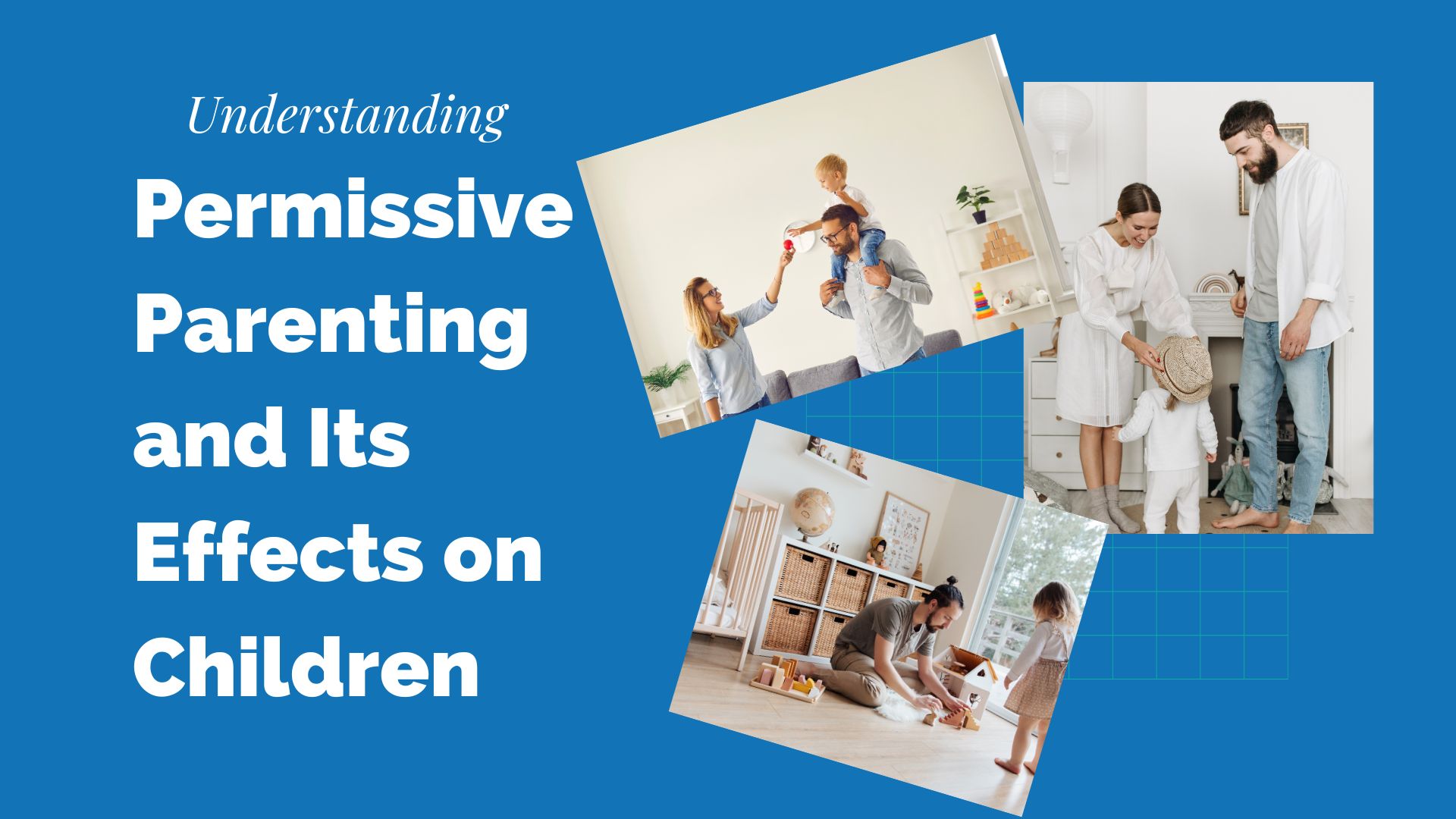
Parenting plays a crucial role in shaping a child’s character, emotional well-being, and social interactions. One prominent parenting style is permissive parenting, where parents offer warmth and affection but often avoid setting strict boundaries or enforcing rules. While this style stems from a desire to nurture children’s happiness, it can have significant consequences for their development. Understanding the effects of permissive parenting can help caregivers create a more balanced approach that promotes growth, responsibility, and emotional intelligence.
What Is Permissive Parenting?
Permissive parenting is characterized by indulgence, leniency, and a lack of structure. Parents practicing this style are highly responsive and loving but set few if any, limits on their children’s behavior. They tend to avoid conflict and may prioritize their child’s desires over discipline, often treating them more like a friend than an authority figure.
Key Features of Permissive Parenting:
- Low expectations and minimal rules
- High responsiveness and affection
- Avoidance of discipline or punishment
- Indulgence of children’s wishes
Negative Effects of Permissive Parenting on Children
While permissive parenting may foster a relaxed atmosphere, it can also lead to several challenges that affect a child’s behavior, emotional development, and relationships.
1. Weak Self-Discipline
Without consistent rules, children raised in permissive households often struggle with self-regulation. They may have trouble managing time, staying focused, or meeting their responsibilities, which can cause issues as they grow older.
Long-term Impact: Difficulty following through with tasks and a lack of accountability in school and work environments.
2. Emotional Dysregulation
Children who aren’t taught how to manage frustration or cope with disappointment may struggle to control their emotions when faced with challenges. Since their desires are often met without resistance, they may have difficulty handling setbacks.
Long-term Impact: Emotional outbursts and a lack of resilience in facing adversity.
3. Disrespect for Authority
Children in permissive households might not develop respect for rules or authority figures because they have not been consistently taught boundaries or consequences for their actions. This lack of structure can create difficulties when interacting with teachers, coaches, or later, employers.
Long-term Impact: Conflicts with authority figures in school, work, and social environments.
4. Lower Achievement Motivation
In permissive households, children may be less motivated to achieve because there are fewer expectations or consequences for their performance. This lack of drive can manifest as a tendency to underperform academically or professionally.
Long-term Impact: Lower grades, poor work ethic, and a lack of ambition in adulthood.
5. Increased Risk-Taking Behavior
Because permissive parenting often lacks firm boundaries, children may be more prone to engaging in risky behaviors, such as substance use or unsafe actions, as they might not fully understand the consequences of their choices.
Long-term Impact: Health and safety risks and potential legal or social consequences.
6. Difficulties with Peer Relationships
Children raised without the guidance of clear boundaries may struggle to form healthy friendships or handle peer conflicts. They may have trouble respecting others’ limits or be overly self-centered.
Long-term Impact: Problems with cooperation, empathy, and maintaining lasting friendships.
Striking a Balance: Nurturing and Guiding Children
While permissive parenting has drawbacks, it’s important to recognize that warmth and affection are critical in child development. The key challenge is balancing nurturing love with the structure and discipline children need to thrive.
Steps to Achieve a Balanced Approach:
- Set Clear and Consistent Boundaries
Establish rules that are easy for your child to understand and follow. Consistent enforcement is important for developing responsibility. - Be Firm but Kind
Discipline should be a teaching tool, not a punishment. Explain the reasons behind rules and decisions to help children understand the value of structure. - Encourage Responsibility
Give children age-appropriate tasks and hold them accountable for their actions, fostering a sense of ownership and independence. - Promote Open Communication
Create an environment where children feel comfortable expressing their thoughts and feelings, while also learning the importance of respecting others’ boundaries. - Be a Role Model
Demonstrate self-discipline, respect, and emotional control. Children learn by observing the behavior of adults around them.
A Balanced Approach for Growth
Permissive parenting, though born from a place of love, can have lasting consequences on a child’s emotional, social, and academic development. Children raised in permissive environments may struggle with self-discipline, authority, and emotional regulation, which can affect their future relationships and success.
By creating a more balanced parenting approach—one that combines nurturing love with consistent guidance and boundaries—parents can help their children develop into responsible, resilient, and confident individuals. This approach ensures children receive the best of both worlds: unconditional love and the structure needed to succeed in life.
About The Author: Payal Jain
About The Author: Payal Jain
She is a compassionate life coach, counselor, and certified VK teacher, with extensive expertise in cosmic healing techniques and energy work.
Well-versed in the use of Affirmations, Switchwords, Bach Flower Remedies, and Cosmic Serums of Vibbes Kada, she helps individuals align with their highest potential. As a faithful, true, and wholehearted follower of Sharat Sir, she has been profoundly shaped by his guidance and teachings, which have empowered her to master these transformative healing modalities. Sharat Sir regards her not only as a devoted student but also as a cherished member of his family.
As a senior member of the Litairian core committee, she continues to serve with dedication, always striving to share the wisdom imparted by Sharat Sir. In her roles as a Cosmic (VK) Healer, Law of Attraction teacher, and Reiki Master/Healer, she empowers individuals on their journeys of self-discovery and fulfillment. A recipient of the prestigious WOW Personality Award in Mumbai (2016), she is also an accomplished blogger, sharing insights and positivity inspired by Sharat Sir’s teachings.
